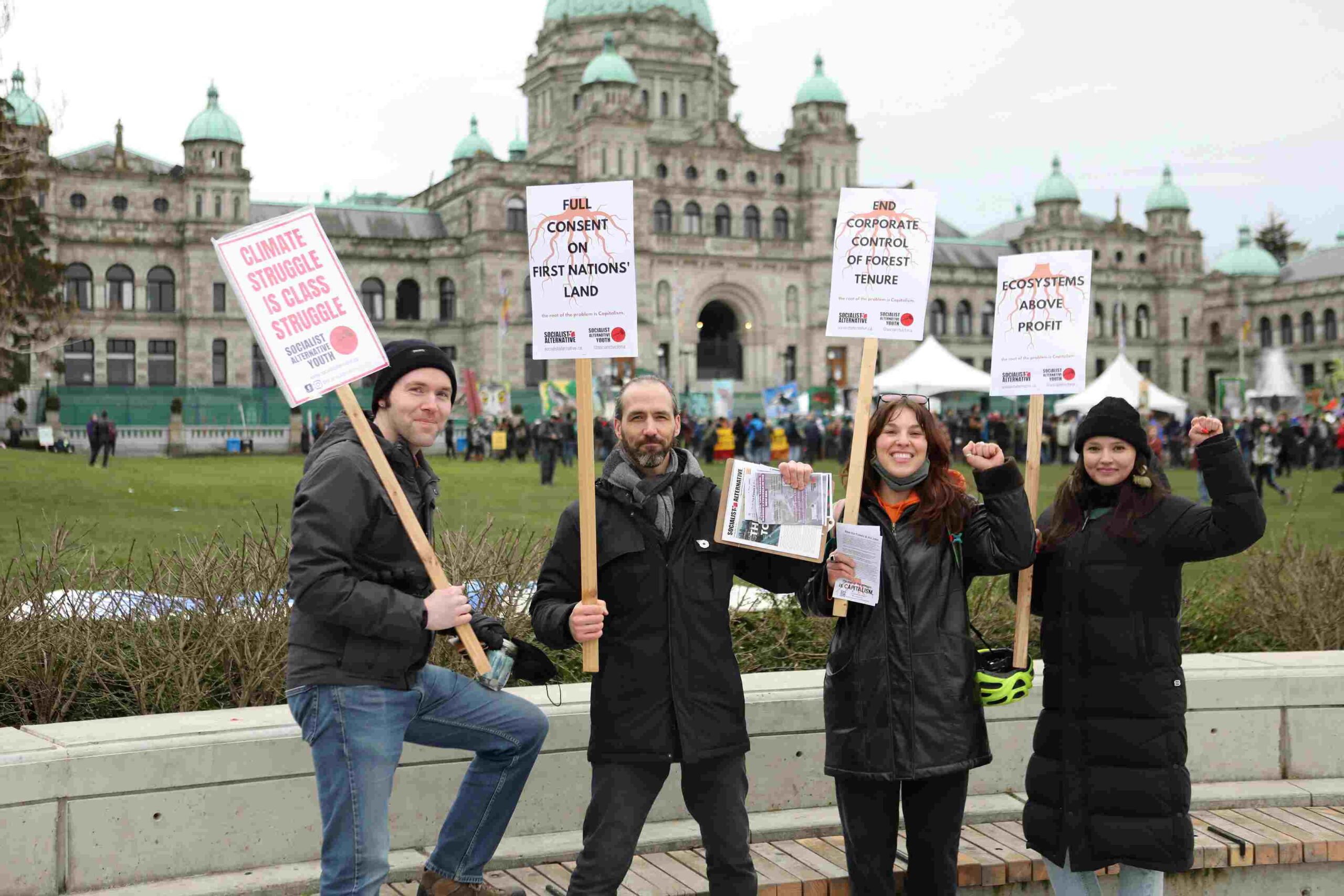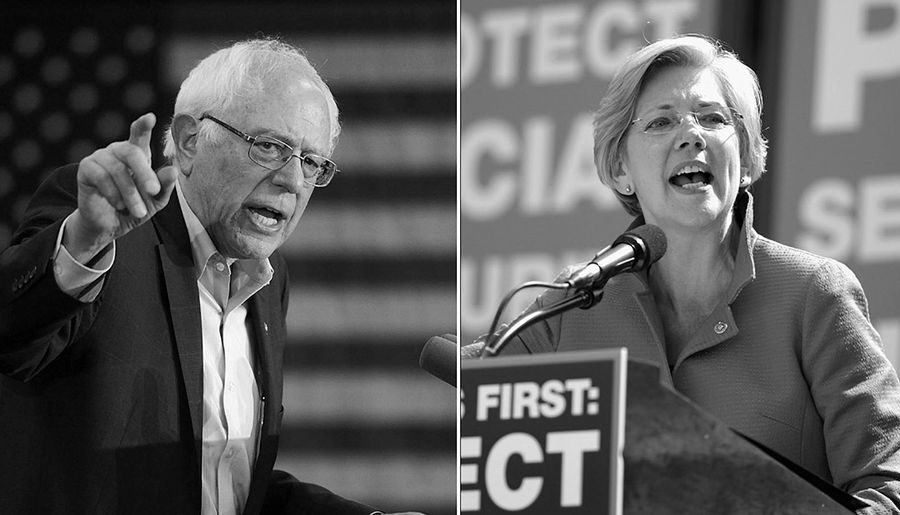This year marks the 30th anniversary of the climactic battle in the long simmering “War in the Woods” in Clayoquot Sound. On March 12, 1993, protesters stormed the legislature building to demand that the BC NDP fulfill their election promise to protect what was — even back then — some of BC’s last remaining old growth forests. And by the end of that summer almost a thousand people had been arrested for blockading logging trucks at Kennedy Lake Bridge in what stood as the single largest act of civil disobedience in Canadian history until 2020, when it was surpassed by the even bigger action in Fairy Creek — which was also in defence of (so-called) Vancouver Island’s old growth.
Happily, the historic battle was not fought entirely in vain: a degree of control over the forests in Clayoquot Sound were returned to the local Nuu-chah-nulth First Nations soon afterwards. But this victory did little to spare BC’s old growth forests more generally. Indeed, in the three decades since the Kennedy Lake Bridge blockades, and despite continued mass opposition, the destruction of BC’s forests has continued apace — Fairy Creek itself is a testament to this.
Now this destruction is bearing bitter fruit in the form of massive flooding, landslides, and streams that are too warm for spawning salmon. Moreover, the forestry industry is seeing huge job losses as corporations like Canfor, Interfor, and West Fraser steadily migrate south of the border to where forests regenerate more than twice as quickly. Earlier this year, for example, Canfor announced that it is permanently closing its pulp and paper mill in Prince George, as well as a sawmill and pellet plant in Chetwynd and another sawmill in Houston, BC — the latter was the largest in the world when it opened a mere twenty years ago. These are not isolated incidents, but part of a larger trend: in the last three decades BC has lost roughly 50,000 forestry jobs, halving the workforce and devastating small communities.
Crisis Years in the Making
The problem is not that environmental protections are too strict in BC, as some suggest. On the contrary, many of the forests (especially on Vancouver Island) are standing on “private” land, which can essentially be logged at will; and the infamous “unduly restrict” clause, which prioritizes the timber output over all else, is still in effect. The province still does not even have species-at-risk laws! All of this means that BC’s forests can be logged like there is no tomorrow. And so they have been: as recently as 2021 the big logging corporations raked in record profits in large part from the sale of BC timber (Canfor, $1.5 billion; Interfor, $819 million; West Fraser, $2.9 billion).
The real problem is that decades of government failure — BC Liberal and NDP — has allowed these corporations to ravage the forests. Giant “super mills” have been built, and their voracious appetites have been fed under the cover of “salvage harvesting” trees infested with mountain pine beetle. Untold numbers of raw logs have been exported to be milled and processed elsewhere, taking jobs with them (a practice that the NDP said it would ban when in opposition, but which continues to this day). And operations that turn old growth trees into wood pellets that are used to generate electricity in Britain have been not only tolerated but subsidized by the provincial and federal governments.
As a result, BC’s forests are now almost gone. The corporations that consumed them are leaving for greener pastures and taking their profits with them. And an unheeded warning voiced by protesters in Clayoquot Sound thirty years ago is on the brink of becoming BC’s reality: “No trees, no fish, no jobs.”
NDP’s Lack of Transparency
The grim picture contrasts sharply with the one painted by the NDP government, which claimed in 2020 that there were 13.2 million hectares of old growth remaining in the province. But a 2021 re-analysis of the government’s own data by independent ecologists found that, once unproductive ecosystems such as bogs and rocky alpine areas were subtracted from the tally (as they tend to have few timber-worthy trees), there was actually only 400,000 hectares of big-treed old growth remaining in the province. This translates to 4,000 square kilometers, or less than 0.5 percent of BC’s landmass. And this was several years ago.
Even now, however — despite David Eby’s recent admission that our forests are “exhausted” — the NDP continues to claim there are 11.1 million hectares of old growth remaining, covering a full 12 percent of the province’s landmass!
The NDP has also bragged that old growth logging has slowed to “record lows” under their watch, and they recently announced a slate of policy changes to help protect what remains: for example, expanding deferrals (which are supposed to delay or restrict logging in certain places), and committing to phase out the (above-mentioned) unduly restrict clause and to fully involve First Nations. However, the government’s lack of transparency has given activists alegitimate basis on which to allege that the rate of old growth logging is being fudged to placate the public while the last few shreds of timber are consumed. And while its recent policy changes are certainly significant steps in the right direction, the lack of immediate practical measures being taken is glaring. This has also been noted by groups like the Wilderness Committee — who, in cooperation with Stand.Earth and Sierra Club BC, released a “BC Government Old-Growth Report Card” last month, with failing grades across the board.
None of this should be surprising. The NDP is, after all, the same party that oversaw the mass arrest of protesters at both Clayoquot Sound and Fairy Creek after failing to live up to election promises to protect old growth. It is the same party, too, that recently anointed David Eby as its leader (and, thus, as BC’s premier) after unfairly disqualifying the more radical environmentalist, Anjali Appadurai.
Clearly, BC’s government needs to do much more to craft a response appropriate to the emergency situation in the forests. Unfortunately, just as clearly, the NDP — despite being the closest thing BC has to a party of the working class — has repeatedly proven itself unsuited to the task.
“Green Capitalism”: Missing the Forest for the Trees
The BC Green Party, on the other hand, whose political relevance further underscores the environmental failures of the NDP, nonetheless offers no real solution: their brand of “green capitalism” is too loaded with contradictions. Capitalism, after all, is precisely what is driving the rapid transformation of BC’s priceless ancient forests into relatively worthless money (the only shade of green that capitalism will ever understand). It will never be reformed into a system that values nature.
Unfortunately, much the same critique also applies to most of BC’s environmental leaders even beyond the Green Party. The websites of most groups that stand for protecting old growth forests stop short of any critique of the insatiable, profit-driven system these forests are fodder for. Many groups point to colonialism as a root cause of the problem, and this is partially true as the dispossession of Indigenous peoples from the land was needed to open the door to the mass logging. However, the root cause of colonialism — capitalism — is seldom highlighted and largely ignored by those seeking to protect old growth forests.
This blindness often leads to underplaying or ignoring the plight of the workers and communities that rely on forestry; it sets environmentalists and labour at loggerheads instead of uniting them in common struggle.
The environmental movement needs a clear program to protect old growth forests and jobs. It should point to capitalism as the root cause of the problem, lay bare capitalism’s insatiable nature, and keep it squarely in the crosshairs. The absence of this analysis leaves innate human greed and ignorance as the villains-apparent: a conclusion that leads many people to cynicism and despair. Moreover, environmental advocacy, activism, and even legislation — while often necessary — can only accomplish so much in the context of capitalism. History has shown that it only saves forests for the next beetle infestation, or until some other convenient pretext for harvesting comes along. Environmentalism under capitalism, in other words, is like a game of perpetual Whac-A-Mole — except that old growth forests are obliterated whenever the corporate moles pop up.
Faced with this losing game, there is only one logical course of action: the profit-driven system that is consuming these forests must be confronted and, ultimately, replaced with a well-planned system that prioritizes community and nature. This is not “green capitalism.” This is revolutionary socialism.
The Root of the Problem is CAPITALISM
This was the message Socialist Alternative and Socialist Alternative Youth brought to the recent United for Old Growth Rally in Victoria — an event that we supported and attended in force. And the reception we met with suggests there is plenty of grassroots enthusiasm for these ideas: in the space of just a couple of hours, we collected 88 signatures on a petition that called out capitalism as the root of the problem and advanced concrete demands to save both BC’s forests and its jobs.
Our demands are designed to take aim at the capitalist system itself, to wrest control of BC’s forests away from the capitalist class and to unite environmentalists and labour in service of this cause. Specifically, we demand:
- Truly democratic, public ownership and control of the forests!
- An end to the corporate-controlled forest tenure system that doles out land to private companies, making a mockery of BC’s so-called “publicly-owned” forests!
- The free, prior, and informed consent of Indigenous and other forest-dependent communities, to whom the land belongs!
- The prioritization of ecosystems over profit!
- A just transition to good secure jobs for all forestry workers!
- An immediate halt to logging in all at-risk old growth forests!
Only a few super rich people win when private companies level forests, fire everyone, and then leave with the profits. Democratic control of the forests and forestry would make a profound difference.
Join us, if you agree, and help us fight for BC’s unique old growth forests — not to mention some of the very last intact ecosystems remaining on the planet. Together, we can still win the War in BC’s Woods.




